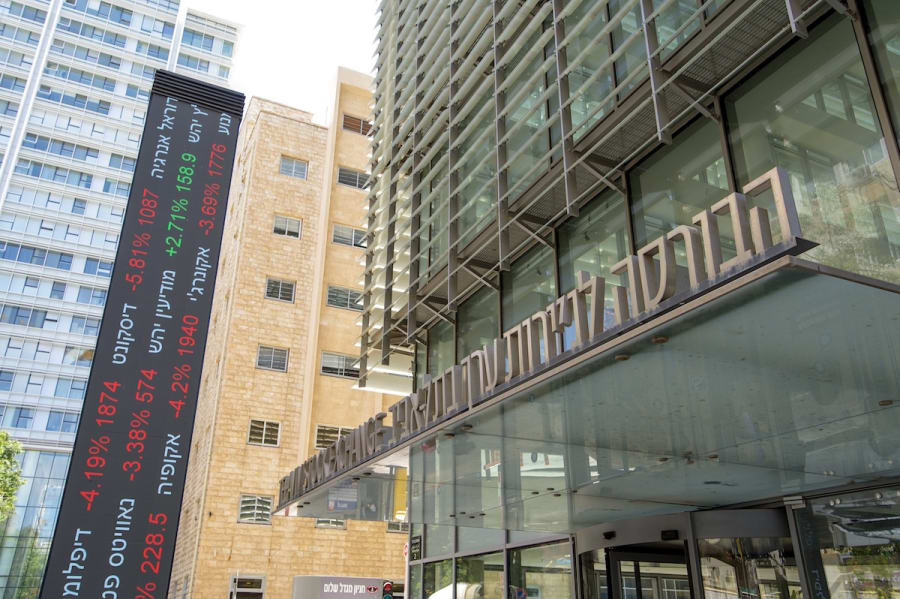Seeking shelter from market volatility? Israeli bonds deserve a look

Over the past year, everyone’s been talking about the stock market in Israel – and for good reason. The TA-125 index is up over 50%, which is nothing short of spectacular. But while headlines scream about booming equities, I’ve found myself looking in a different direction: the Israeli bond market. And if you’re a cautious investor who is looking for steady, lower-risk returns, then this might be the time to give bonds a second look.
Let me explain why.
As someone who works closely with both growth-orientated and conservative investors, I’ve noticed a pattern. When markets get euphoric, conservative investors often feel sidelined. The risk-reward profile of stocks can feel like too much of a rollercoaster, especially in a country still facing geopolitical uncertainty. But what many don’t realise is that Israel’s bond market has been quietly outperforming expectations – and, in many cases, delivering equity-like returns without the whiplash.
In fact, over the past 12 months, the Tel-Gov Shekel +5 index (which tracks medium-to-long-term government bonds) rose more than 10%. That’s not a fluke. It’s a result of a few powerful forces working in favour of bonds: interest rate trends, improving security conditions, and shifts in investor sentiment.
We’re at an intriguing inflection point. The Bank of Israel’s interest rate is likely at or near its peak. Inflation is cooling, and while no one has a crystal ball, most analysts expect the central bank to start cutting rates sometime later this year or early next. And when rates fall, bond prices tend to rise. That’s the sweet spot for conservative investors – earning a solid yield now, with the potential for capital gains as rates decline.
Lately, I’ve spoken with several private Israeli investors who are keeping significant amounts parked in bank deposits or money market funds. It’s a familiar situation: the desire for safety is strong, but there’s also a growing frustration with the lack of meaningful returns. These “safe” instruments, while stable on the surface, are quietly losing value in real terms as inflation chips away at their purchasing power. In contrast, bonds are offering something increasingly rare – a current yield exceeding 4%, with the potential for total returns of 6–7% over the next year. That’s approaching equity-level performance, but without the nerve-wracking swings.
What’s more, we’re seeing opportunity not only in government bonds but also in high-quality corporate bonds – especially from Israeli banks and insurance companies. These institutions are highly regulated and resilient, and their bonds provide attractive yields with relatively low default risk. Combining government and corporate bonds in a portfolio can give you a nice mix of stability and performance.
Some might ask: isn’t it too late? Haven’t bonds already had their run? It’s a fair question. Yes, bond prices have risen over the past year, but in my view – and in the view of many analysts –that was just the beginning. The full impact of rate cuts has yet to be priced in. And with geopolitical tensions easing (for now), the risk premium that weighed on Israel during wartime has begun to lift.
Of course, not everyone agrees. Some economists are cautious, pointing out that uncertainty remains, especially if fighting with Hamas flares up again or if interest rates don’t come down as quickly as hoped. That’s the market – it’s never without risk.
However, if you’re the kind of investor who prefers a more measured approach – someone who wants to grow their savings without sleepless nights – this could be your window.
In a world that often rewards speed and risk, Israeli bonds offer a rare invitation to grow quietly, steadily, and securely. And right now, I think that’s worth paying attention to.

Ihor Pletenets is a finance professional with a B.A. (Hons) in Accounting and Finance from the University of West London. His interest in the stock market began during his student years and naturally led to a career in the financial industry. After spending several years in the capital markets in the UK, he moved to Israel and joined the Israeli portfolio management firm Wise Money Israel. He currently resides in Tirat Carmel with his wife and their daughter.













